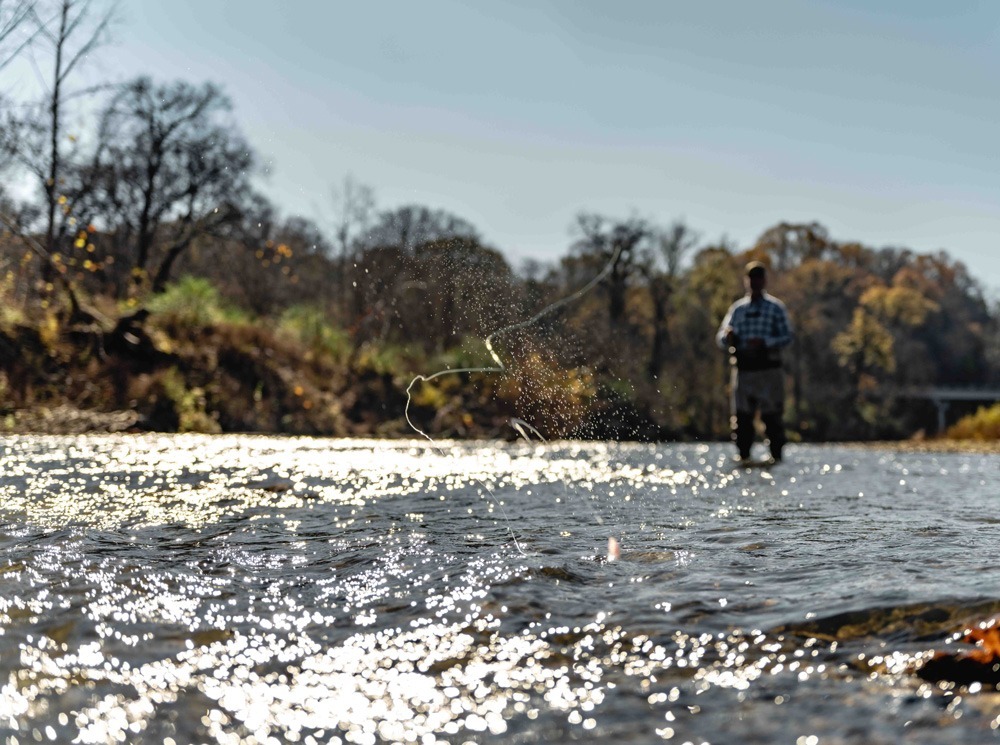Inadequate Water Resource Management
Regional growth is good for the economy, but if not done responsibly it will have detrimental impacts on the lands, water, and wildlife that draw many people to Tennessee. The health and abundance of Tennessee’s waterways is worth taking the time and resources to plan and monitor regularly.
Water is Everywhere
There are more than 60,000 miles of streams and rivers and more than 580,000 acres of lakes and reservoirs in Tennessee, providing habitat for fish and wildlife; drinking water for people, wildlife, and livestock; irrigation for agricultural land; recreation opportunities; and much more. Every acre of Tennessee is within a watershed, meaning water from every corner of the state drains into a river, stream, or other outlet and can have downstream impacts.
Tennessee is one of the most biodiverse states, but population growth and city expansion is threatening that biodiversity. Effectively managing water resources is crucial to protecting wildlife and aquatic ecosystems.
As a nation, we have long understood the value of healthy and abundant water. For the past 40-plus years, our citizens and our public policies have recognized that in order to have healthy and abundant water we must fix the problems we have created, namely reversing the destruction of our country’s streams, rivers, and wetlands.
Under the Clean Water Act, Tennessee’s waterways are regularly monitored to assess their functionality, pollution levels, and more. As of May 2022, less than half of the streams and rivers in Tennessee have been assessed. Of those assessed, more than 17,000 miles of Tennessee’s streams and rivers are classified as impaired, meaning they are not able to support at least one of their designated uses. Over 40% of assessed lakes and reservoirs are impaired.
In the last decade, Tennessee Wildlife Federation has played integral roles in multiple threats to the health of Tennessee’s waterways—including preventing wastewater dumping in the Hatchie River in 2015, managing water withdrawals from the Duck River in 2022, and an ongoing wastewater discharge issue involving Lick Creek. While these were major issues that caught the public’s attention, similar problems are occurring in countless creeks, streams, and rivers across the state.
Tennessee’s public waterways should not be taken for granted. As water needs continue to increase, it is imperative that Tennessee’s waters are proactively managed to prevent losing these essential resources.

Speak out
Help lead Tennessee's wildlife and habitat conservation movement by making your voice heard.
Give
Your generosity helps manage wildlife populations and restore habitats for a more vibrant Tennessee.
Sign up for action alerts
Learn More
75 Years of Conservation: Conservation is Collaborative
Conservation is no single approach or method. It’s a collaborative effort that often requires different perspectives to come together and compromise. This has been proven to us time and time again...
Senator Hagerty Supports Bipartisan Bill To Help At-Risk Wildlife
By National Wildlife Federation Senator Bill Hagerty has signed onto a bipartisan wildlife conservation bill, the Recovering America’s Wildlife Act, that will dedicate $1.4 billion annually to...
Mississippi River Facing Severe Ecological Decline
Tennessee Wildlife Federation needs you to support legislation that will safeguard and restore the health of the Mississippi River so that our wildlife and our communities have safe, clean water.




